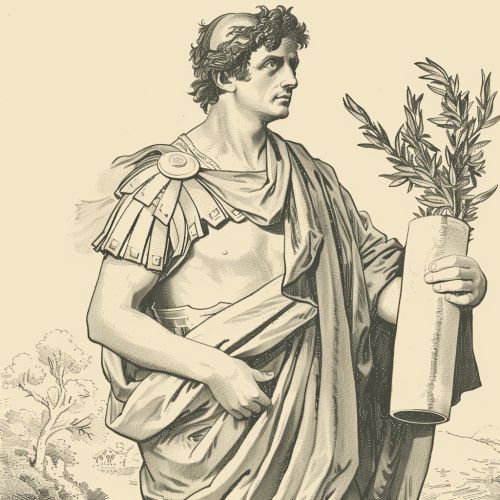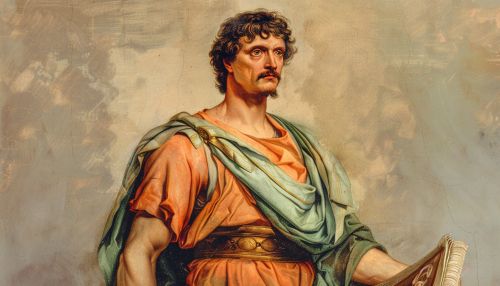Lucretius
Early Life and Background
Titus Lucretius Carus, commonly known as Lucretius, was a Roman poet and philosopher who lived during the 1st century BCE. Little is known about his early life, and much of what we understand about him comes from his sole surviving work, the epic philosophical poem "De Rerum Natura" (On the Nature of Things). Lucretius was born around 99 BCE, though the exact date and place of his birth remain uncertain. His work suggests he was well-educated and deeply influenced by the Epicurean philosophy.
Philosophical Context
Lucretius' work is heavily influenced by the teachings of Epicurus, who founded Epicureanism in the 4th century BCE. Epicureanism is a system of philosophy based on the teachings of Epicurus, focusing on the pursuit of happiness through the avoidance of pain and fear. Central to this philosophy is the belief in atomism, the idea that the universe is composed of small, indivisible particles called atoms. Lucretius sought to explain and popularize these ideas in his poem, aiming to free people from the fear of gods and death.
De Rerum Natura
Structure and Content
"De Rerum Natura" is divided into six books, each addressing different aspects of Epicurean philosophy and natural science. The poem begins with an invocation to Venus, the goddess of love, and proceeds to discuss the nature of the universe, the principles of atomism, the nature of the soul, and the development of the world and human society.


Book I: The Universe and Atomism
The first book introduces the basic principles of Epicurean physics, emphasizing that nothing comes from nothing and that everything is composed of atoms and void. Lucretius argues against the existence of divine intervention in the natural world, asserting that natural phenomena can be explained through the movement and interaction of atoms.
Book II: The Motion of Atoms
In the second book, Lucretius delves deeper into the nature of atoms, describing their infinite number and constant motion. He explains the concept of the "swerve" (clinamen), a random deviation in the motion of atoms that allows for free will in an otherwise deterministic universe.
Book III: The Nature of the Soul
The third book focuses on the nature of the soul, which Lucretius argues is composed of fine atoms and is mortal. He contends that the soul perishes with the body, and thus, there is no afterlife. This section aims to liberate readers from the fear of death and the afterlife.
Book IV: Sensation and Thought
In the fourth book, Lucretius explores the mechanisms of sensation and thought, explaining how images (simulacra) emitted by objects interact with the senses. He also discusses the nature of dreams and the psychological basis of love and desire.
Book V: The Origin of the World and Society
The fifth book addresses the origin and development of the world, human society, and civilization. Lucretius describes the formation of the earth, the emergence of life, and the evolution of human culture, including the development of language, technology, and social institutions.
Book VI: Natural Phenomena and Conclusion
The final book examines various natural phenomena, such as weather, earthquakes, and diseases, providing naturalistic explanations for these events. Lucretius concludes with a vivid description of the Athenian plague, emphasizing the importance of understanding nature to overcome fear and superstition.
Influence and Legacy
Lucretius' work had a profound impact on later thinkers and writers. During the Renaissance, his ideas were rediscovered and embraced by scholars such as Giordano Bruno and Pierre Gassendi, who saw in Lucretius a precursor to modern scientific thought. His emphasis on naturalism and rationalism influenced the development of the Scientific Revolution and Enlightenment.
